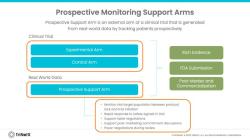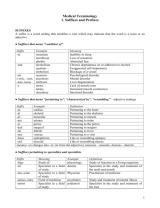What is an assistant surgeon?
An assistant surgeon, also known as a surgical assistant or first assistant, is a healthcare professional who plays a crucial role in surgical procedures, working alongside the primary surgeon to ensure the safe and successful completion of surgeries. The role and responsibilities of an assistant surgeon in healthcare include the following:
Assisting the Primary Surgeon: The assistant surgeon works closely with the primary surgeon during surgical procedures. They provide support and assistance as needed, helping with various aspects of the surgery.
Surgical Preparation: Before the surgery begins, the assistant surgeon helps prepare the operating room, ensuring that all necessary equipment, instruments, and supplies are available and in good working condition.
Patient Positioning: The assistant surgeon may assist in positioning the patient on the operating table to ensure proper exposure of the surgical site while maintaining the patient's comfort and safety.
Sterile Technique: Maintaining strict sterile technique is essential in the operating room to prevent infections. The assistant surgeon follows sterile procedures when handling instruments and supplies during the surgery.
Instrumentation: The assistant surgeon assists with passing surgical instruments, sutures, and other tools to the primary surgeon as needed during the procedure. They may also handle tissue retractors and suction devices.
Suturing and Closure: After the primary surgeon completes the surgical steps, the assistant surgeon may be responsible for suturing incisions, closing wounds, and ensuring proper hemostasis (control of bleeding).
Tissue Handling: The assistant surgeon may handle tissues, organs, and other structures within the surgical site, holding them in place or manipulating them as directed by the primary surgeon.
Hemostasis: Controlling bleeding during surgery is critical. The assistant surgeon may assist with techniques such as ligating blood vessels, applying hemostatic agents, and using electrocautery devices.
Communication: Effective communication between the assistant surgeon and the primary surgeon is essential. The assistant surgeon must be prepared to respond quickly to the primary surgeon's requests and instructions.
Postoperative Care: After the surgery is completed, the assistant surgeon may assist with wound dressing, applying dressings, and ensuring the patient's safety during the transfer from the operating room to the recovery area.
Documentation: Accurate record-keeping is vital in healthcare. The assistant surgeon may be responsible for documenting the surgical procedure, including the steps performed, instruments used, and any complications encountered.
Patient Advocacy: While the primary focus is on assisting the surgeon, the assistant surgeon also advocates for patient safety and well-being throughout the surgical process.
Assistant surgeons are typically highly trained healthcare professionals, which may include physician assistants, surgical nurses, or other individuals with specialized surgical training. The specific qualifications and scope of practice for assistant surgeons can vary by jurisdiction and healthcare facility. It's important to note that the primary surgeon retains overall responsibility for the surgery, while the assistant surgeon supports them in providing safe and effective patient care.













